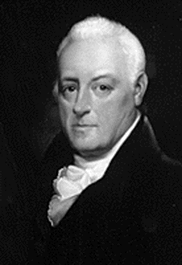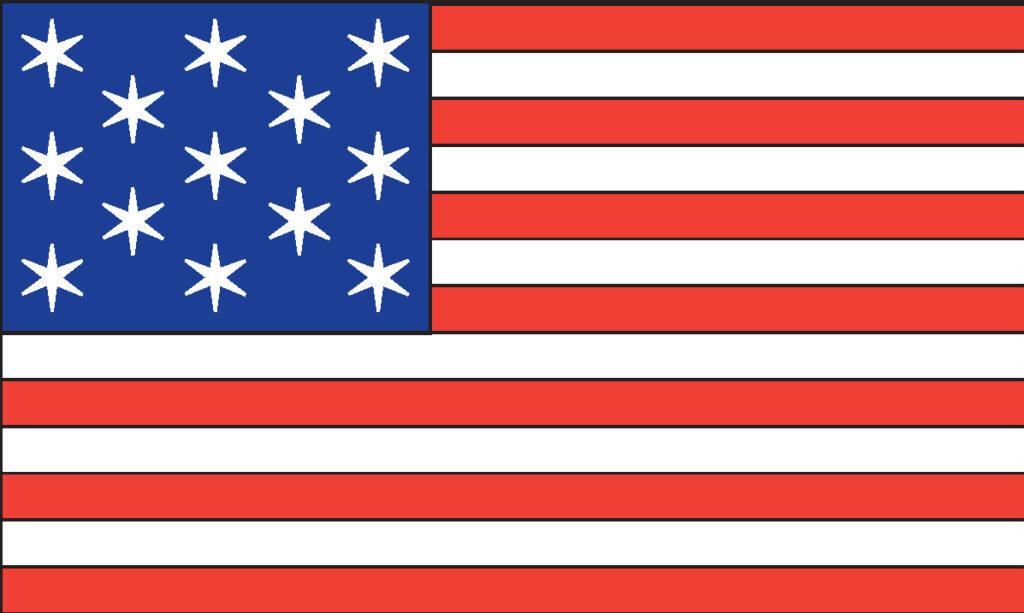Robert Yates(?), a non-signing Delegate to the Constitutional Convention, using the penname “Brutus,” publishes an anti-federalist essay, warning that ratification of the proposed Constitution for the united States will result in “swarms of officers to harass our people, and eat out their substance.” In paragraphs 8 and 13 he writes,
[I]t will lead to the passing a vast number of laws, which may affect the personal rights of the citizens of the states, expose their property to fines and confiscation, and put their lives in jeopardy: it opens a door to the appointment of a swarm of revenue and excise officers to pray [sic] upon the honest and industrious part of the community, eat up their substance, and riot on the spoils of the country. …
· · · · · ·
… and which will introduce such an infinite number of laws and ordinances, fines and penalties, courts, and judges, collectors, and excisemen, that when a man can number them, he may enumerate the stars of Heaven.
NOTES:
- Although “Brutus” uses the word “country” here, the editors believe that he meant to use the word “Union,” which is a union of sovereign States under a federal system, with a central government whose powers are strictly limited by a respected Constitution; as opposed to “nation,” in which a central government, with almost limitless power, treats its constituent states as mere enclaves, provinces, or sub-divisions of its greater self.
- Although the identity of “Brutus” is not known for sure, many scholars believe him to have been Robert Yates, an Associate Justice of the New York Supreme Court.
[restored 9/27/2021]
Richard Henry Lee, former President of the united States in Congress assembled, using the penname “The Federal Farmer,” publishes an anti-federalist essay, warning that if the proposed Constitution for the united States is ratified without allowing for the House of Representatives to growth with the population, the result will be despotism. In paragraphs six, seven and eight he writes,
The representation is unsubstantial and ought to be increased. … [Y]et their political influence, perhaps, is equal to that of all the other descriptions of men; if we may judge from the appointments to Congress, the legal characters will often, in a small representation, be the majority; but the more the representatives are increased, the more of the farmers, merchants, etc. will be found to be brought into the government.
… [A] small representation can never be well informed as to the circumstances of the people, the members of it must be too far removed from the people, in general, to sympathize with them, and too few to communicate with them; a representation must be extremely imperfect where the representatives are not circumstanced to make the proper communications to their constituents, and where the constituents in turn cannot, with tolerable convenience, make known their wants, circumstances and opinions, to their representatives; where there is but one representative to 30,000 or 40,000 inhabitants, it appears to me, he can only mix. …
… It is a consideration well worth pursuing, how far this house of representatives will be liable to be formed into private juntos [clubs], how far influenced by expectations of appointments and offices, how far liable to be managed by the president and senate, and how far the people will have confidence in them.
[restored 9/27/2021]
Subsequent Events:
Authority:
“Law of the Jungle”
ccc-2point0.com/preface
References:
Murray Dry, The Anti-Federalist: An abridgement, from The Complete Anti-Federalist by Herbert J. Storing, ed., (Chicago and London: University of Chicago Press, 1985), 74-78.
1787: Letters from the Federal Farmer, No. 7 (Pamphlet) – Online Library of Liberty
www.consource.org/document/federal-farmer-letters-to-the-republican-v-1787-10-13/
Brutus V
www.infoplease.com/primary-sources/government/anti-federalist-papers/brutus-v
The Prophetic Antifederalists | Mises Institute
mises.org/library/prophetic-antifederalists


